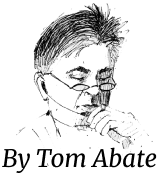In 1976, San Francisco’s Chinatown erupts in fireworks to celebrate the death of Chairman Mao. In the commotion, a young political refugee living in anonymity recalls how, ten years earlier, she had been one of the teenage virgins selected to entertain the aging veterans of the Long March. This 1934 tactical retreat became the founding myth of the People’s Republic of China.
Through the novel’s reverie, in the safety of her thoughts, protagonist Mei Xiang relives the ambition and idealism that prompted her to leave her village to live in the Forbidden City, as Beijing’s Imperial Palace was historically known. She becomes Chairman Mao’s bedmate as he instigates the Cultural Revolution of 1966. Mao mobilized paramilitary students known as Red Guards to help him regain state control from fellow Long Marchers, who had reduced him to a revolutionary figurehead. The somewhat naïve Mei becomes Mao’s mouthpiece, exhorting student zealots to drive his rivals from office for such counter-revolutionary crimes as allowing peasants to cultivate individual garden plots after they finish work on the collective farm. But Mei becomes disillusioned as the guards recite aphorisms from the Chairman’s Little Red Book to justify the beatings, tortures, and humiliations they inflict in pursuit of
…politically polarized Americans seem to have adopted the Maoist mentality of ignoring the hypocrisies of the leaders they follow…
revolutionary purity. When she publicly condemns this hypocrisy, Mei is forced to flee and only through extraordinary luck and cunning escapes to Chinatown. But not even Mao’s death tempts her to abandon her pseudonym and speak her real name aloud. Author Vanessa Hua ends the novel by hinting at the identity of the fictional listener who Mei can trust to forever keep her secret of having left behind her country, her family, and her very essence as a woman.
Reviewers have praised Hua, a former journalist turned fiction writer, for her research into the little-known young women she personifies in the novel. The Hong Kong-based South China Morning Post cited the book’s “powerful verisimilitude.” The literary publication Zyzzva called it “one of the most compelling works of feminist and historical fiction in recent years.” The Washington Post pronounced it “eye-opening, vital and timely now more than ever.”
I read Forbidden City partly because Hua and I were once newspaper colleagues, but a more important motivation was my lifelong interest in Chinese history and culture. A port call to Hong Kong as a U.S. Navy sailor around the time of Mao’s death crystallized this fascination, and after I left the service, I studied Mandarin at UC Berkeley. There I learned Chinese characters by reading textbooks developed during the Cultural Revolution. They were collections of socialist parables. In one story, a peasant girl about Mei’s age sleeps with the collective’s diarrhetic cow and nurses it back to health so it can continue to give milk. I found the clumsy propaganda amusing. But a classmate embraced this revolutionary ethic, wearing her hair to class in double braids and projecting the same mien of socialist intensity that Mei Xiang displays on the cover of “Forbidden City.”
In the 40 years since I left Berkeley, politically polarized Americans seem to have adopted the Maoist mentality of ignoring the hypocrisies of the leaders they follow while trumpeting their opponents’ every real, feared, or imagined fault. When a former president of the #MeToo party overawed a young woman into fellating him in the White House and was impeached for perjuring himself during an investigation, his supporters minimized it by saying that when he lied, no one died. More recently, the sitting president of the law-and-order party fired up a mob that stormed the Capitol to stop the vote count in an election they maintained had been stolen by an interstate conspiracy of election officials and judges.
Like Mei Xiang, I believe in my country’s founding mythology. America is a constitutional democracy formed to create a more perfect union. Not that we’re perfect yet. But we must believe that government of the people, by the people, and for the people might one day get us there. Forbidden City reminds us that blind faith in a leader inevitably ends with the absolute corruption that comes with the quest for absolute power.
Forbidden City: A Novel was published by Ballentine Books on May 10th, 2022.
Thank you for your attention. Please use the contact box to the left to share an idea, comment, or ask a question.


